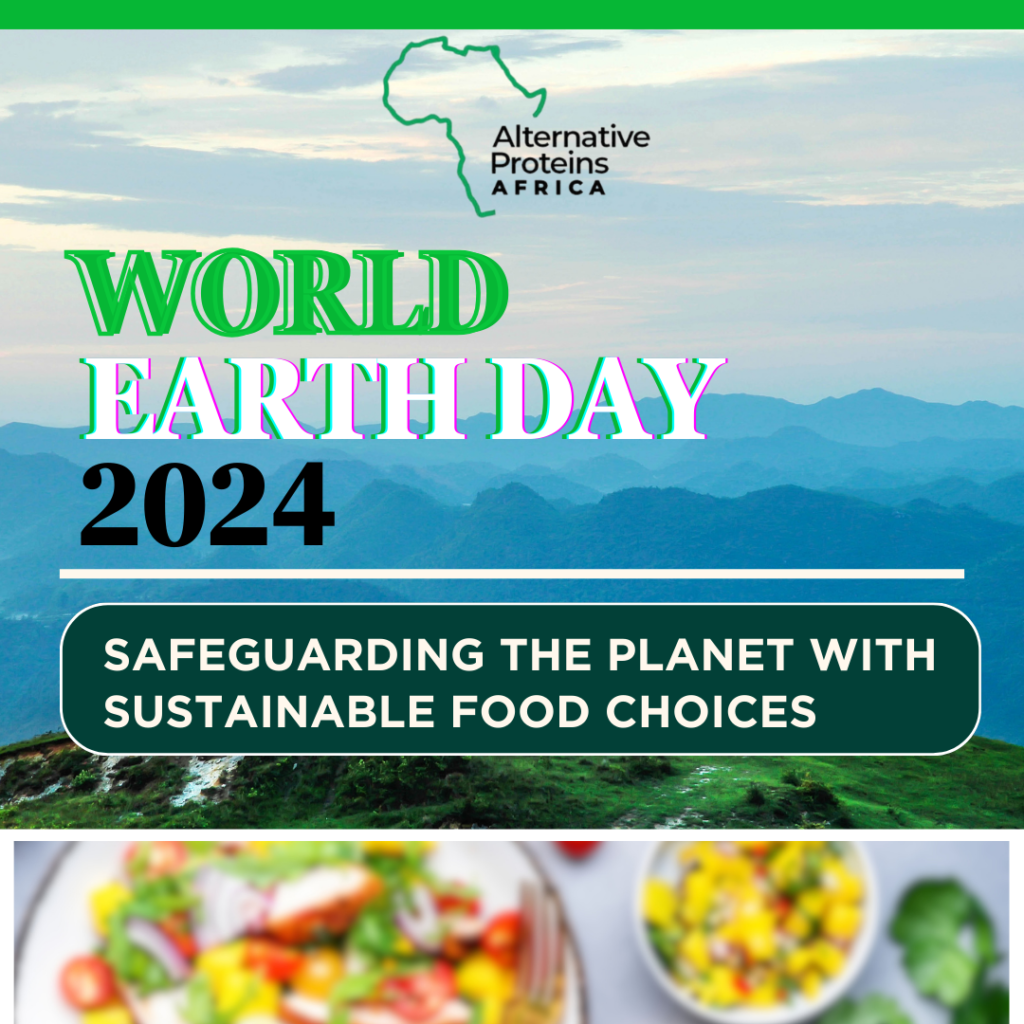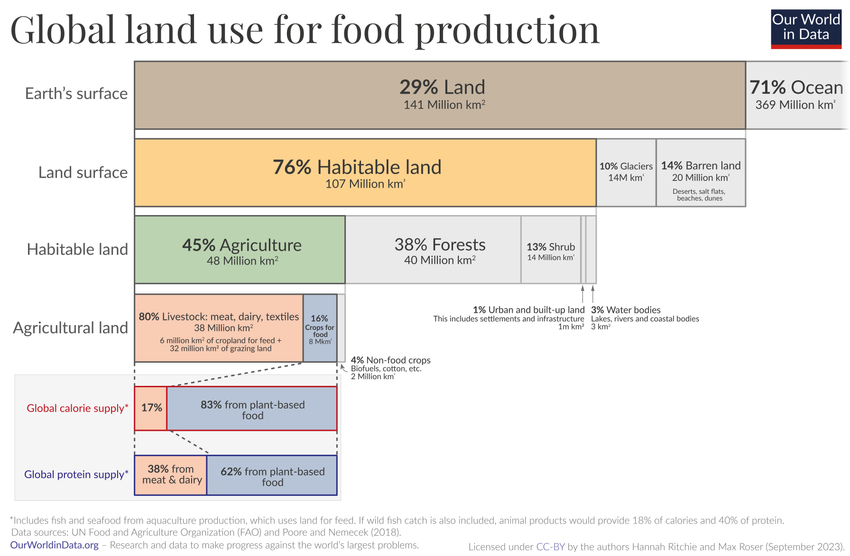
In our world, faced with numerous environmental issues, the need for sustainable diets has never been more evident. As we celebrate this year’s World Earth Day, we must examine how our food systems and dietary choices affect the well-being of our planet and its sustainability. It goes without saying that one vital step we can take towards protecting the earth is to reduce the consumption of animal-based protein sources and embrace sustainable and ethical alternatives.
Why is World Earth Day Celebrated?
The Earth is an amazing planet, home to diverse living and nonliving components in this part of the universe. Unfortunately, this beautiful home is threatened by various environmental challenges such as deforestation, degradation, climate change, and resource depletion. Therefore, the 22nd of April every year has been set aside as World Earth Day to highlight the importance of preserving and protecting our planet and its inhabitants.
The truth about the environmental impact of animal agriculture
Producing animal-source proteins, like meat, eggs, and milk, unarguably harms the environment. By contributing 18% of global greenhouse gas emissions, animal agriculture is a significant contributor to climate change, altering the earth’s temperature and weather patterns. It also contributes to the destruction of habitats and biodiversity loss, thus disrupting the balance in ecosystems.
Furthermore, animal agriculture is responsible for the depletion of the earth’s resources, like water and land. The statistics are staggering; research suggests that if everyone shifts to a plant-based diet, we would be reducing global land use by 75%. Also, animal-based protein sources, like mutton and beef, utilise 100% more land than the ethical, plant-based alternatives. To further indicate the inefficiency of animal agriculture in terms of land utilisation, it has been reported that livestock uses 77% of the world’s agricultural land while only producing 37% of total protein.

Image source: Our World in Data
“Why the need for efficient resource utilisation in food production?” You may ask. The global population a century ago was about 2 billion people. However, the population has now quadrupled to 8 billion people on the same planet. With this increase comes the need to feed more people while conserving resources as much as possible.
Additionally, the production of animal-based foods has been connected to the ethical issue of animal cruelty. This can be seen in factory farming, which is widely obtainable in animal agriculture. The proliferation of factory farming will only lead to further environmental challenges. Also, events like overfishing and poaching of wildlife for meat greatly impact the well-being of the planet. These wildlife populations play a critical role in ecosystem services like nutrient cycling, pollination, pest control, and air filtering. Therefore, it is imperative to embrace sustainable alternatives and support sustainable agricultural practices to promote the health of our dear planet and that of its inhabitants.
Embracing alternative protein sources
Alternative proteins are plant-based, fermentation-derived, and cell-based alternatives to animal-based proteins. They present a more sustainable, ethical substitute and reduce the exploitation of our earth. They are more efficient in terms of resource utilization and protein production. By adopting these alternatives, we are
- reducing the environmental footprint of our food system;
- preserving biodiversity;
- reducing soil degradation;
- promoting better health outcomes;
- Addressing ethical concerns about animal welfare.
Taking small steps towards a healthier planet
Making a healthy transition and embracing sustainable food choices do not have to be a difficult journey. With small but intentional steps, you can adopt sustainable diets, thereby contributing to a healthier planet. Here are a few tips:
- Starting gradually.
- Explore more plant-based sources of proteins, including legumes, seeds, and nuts.
- Select a day or some days of the week where you go meatless.
- Choose locally sourced products.
In addition to making sustainable food choices, building a more equitable and resilient food system takes into consideration how we produce, distribute, and handle our food. By reducing food waste and embracing environmentally conscious agriculture, like regenerative agricultural practices and organic farming, we are reducing the impact of our food system on the well-being of the planet.
In conclusion, we must make conscious and deliberate food choices to promote a healthier planet. When we embrace sustainable diets, we are cultivating a more resilient and compassionate future while also protecting and preserving our planet, which is home to us all. Together, we can drive a meaningful change!
Happy World Earth Day!

